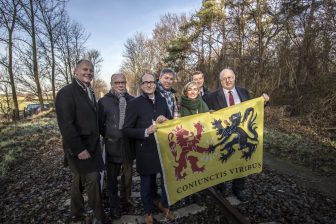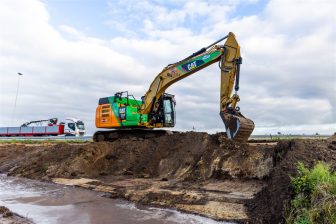Green Paper Satellite Navigation Applications adopted
Reference: IP/06/1709
Commission is looking for new ways to benefit from Galileo navigation system
Brussels, Belgium – With the advent of the European satellite navigation system Galileo, new impetus will be given to the worldwide market for satellite navigation, positioning and timing services. These are expected to bring new prospects to various commercial sectors and improve the daily life of citizens around the world. While boosting the development of new applications by European industry, Galileo will also create many jobs across the EU. In order to make maximum use of this opportunity and stimulate such economic development, the European Commission adopted 2006-12-08 a Green Paper on Satellite Navigation Applications. This document will give all interested stakeholders an opportunity to provide their opinion on the development of satellite navigation applications, and in particular on the role the public sector could play in creating an appropriate framework and defining concrete targets for such applications.
European Commission Vice-President, Jacques Barrot, in charge of Transport, said: "The real value linked to the costs and efforts undertaken to bring Galileo into orbit is that it presents a unique opportunity for new applications, economic growth and job creation in the European Union. These economic returns are many times higher than the costs of the system itself".
The European Union is building a global navigation satellite system called Galileo, which will offer positioning, navigation and timing services as from 2011. To date, one Galileo experimental satellite is already in the orbit and a second one will follow in 2007. Galileo will be more advanced, more efficient and more reliable than the current GPS (the U.S. Global Positioning System). Applications are being continuously developed, covering all walks of life and sectors of the world economy. The satellite navigation market, in which Galileo will play an important role, has been forecast to €400 billions by 2025.
Satellite transmission is now a fact of life in telephony, television, computer networks, aviation and shipping and many other areas. The range of applications open to the Galileo system is extremely varied and the number of potential spin-offs immense. Its profitable applications will spread into many areas of all our lives from safe and efficient transport in every domain (aviation, maritime, road, rail and even pedestrian) to crisis and emergency management, as well as applications in various commercial sectors (precision farming, security of online financial transactions, optimal transfer of electricity along power lines, tourism, etc.).
The Green Paper sets out the frame in which satellite navigation applications are being developed. In particular, it intends to stimulate a discussion among interested parties and prompt new ideas on the possible tasks of the public sector to support the development of such applications.
A set of questions on applications development, on privacy and ethical issues, on the regulatory environment and others are raised throughout the document. In September 2007 the European Commission will sum up the results of the public debate and develop an action plan containing the practical measures which will be proposed as from 2008.
The public consultation will last four months and will take place through the standard web-based instruments. In parallel, a contest for young inventors will be launched to promote innovative ideas on the use of satellite navigation technologies and services
Background
Galileo is Europe’s satellite radio navigation programme. It was launched on the initiative of the European Commission and developed jointly with the European Space Agency. It will prepare for the development of a new generation of services in areas such as transport, telecommunications, agriculture and fisheries. Galileo is optimised for civil applications and will be administered and controlled by the EU institutions as its owner. Galileo will offer a guarantee of quality and continuity which is essential for many applications. It is complementary and interoperable with the current GPS and the combined use of the two systems will significantly increase the reliability and availability of navigation and positioning services worldwide.
http://ec.europa.eu/dgs/energy_transport/galileo/green-paper/index_en.htm
U las zojuist één van de gratis premium artikelen
Onbeperkt lezen? Profiteer nu van de introductieaanbieding voor € 10,- per maand.
Bent u al abonnee?



